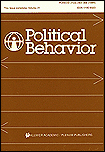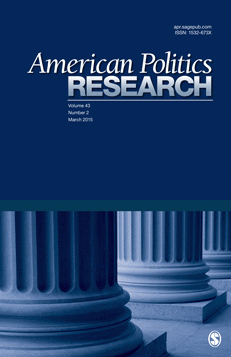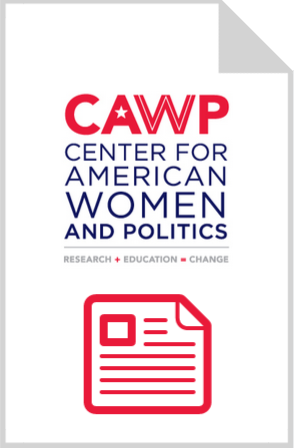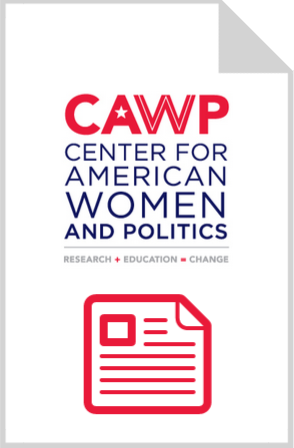2003 Election: Women Candidates for Statewide and State Legislative Office
Fact SheetElection WatchCandidates and CampaignsState LegislatureStatewide ExecutiveStatewide Elective Executive Women 2003
Fact SheetFact Sheet ArchiveStatewide ExecutiveWomen in the U.S. House of Representatives 2003
Fact SheetFact Sheet ArchiveCongressSummary of Election Results for Women Candidates for State Legislatures and State Executive Office in 2003
Fact SheetElection WatchState LegislatureStatewide ExecutiveGender-Related Political Knowledge and the Descriptive Representation of Women
by Kira Sanbonmatsu
Political Behavior, 2003 (December)ArticleResearchCAWP ScholarCivic and Political ActivismCandidates and CampaignsCongressWomen Candidates for State Legislative and Statewide Executive Office 2003
Fact SheetElection WatchState LegislatureStatewide Executive"Political Knowledge and Gender Stereotypes"
by Kira Sanbonmatsu
American Politics Research, 2003 (November)ArticleResearchCAWP ScholarCandidates and CampaignsWomen Voters and the Gender GapSummary of Numbers of Women Running for State Legislative and State Executive Office in 2003
Fact SheetElection WatchState LegislatureStatewide ExecutiveCandidate Recruitment and Women's Election to the State Legislatures
by Kira Sanbonmatsu
Center for American Women and Politics, Eagleton Institute of Politics, Rutgers, The State University of New Jersey, 2003, 47 pagesReportResearchCAWP ScholarPolitical PartiesCandidates and CampaignsCandidate RecruitmentAre US Women Legislators Accountable to Women? The Complementary Roles of Feminist Identity and Women’s Organizations
by Susan J. Carroll
2003, 14 pagesReportResearchCAWP ScholarCivic and Political ActivismImpact of Women Public Officials





